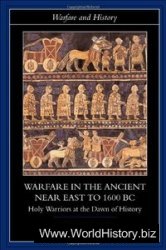From the time of Pakistan's founding there has been serious discussion about the extent to which Pakistan should be an Islamic state. Mohammed Ali Jinnah, the Qaid-i-Azam, or father of the nation, was himself a secularist, although he led the struggle to establish a national homeland for Muslims. Through Pakistan's turbulent history tides have shifted back and forth as governments have changed.
During the regime of General Mohammad Zia ul-Haq (19771988), Pakistan underwent an Islamization program, through which elements of Islamic law were introduced into the Pakistani law code. Subsequent governments, however, have been less strident. Pakistan has sought allies among other Islamic countries as well as with Western powers such as the United States. With American involvement in neighboring Afghanistan, balancing Pakistan's Islamic identity with its Western alliances became an extremely delicate and difficult matter.
Issues of media censorship have been heavily debated in Pakistan, as in many Islamic countries. There are many Islamic schools, and Muslim religious holidays are universally celebrated as Pakistani holidays. Issues surrounding equality for women have become critical, as Islamic law and tradition conflict with the secular legacy from preindependence India and the Western orientation of many of Pakistan's elites.
Poverty remains a serious problem in Pakistan, although in general terms the country has developed far more rapidly than its massive neighbor India. Child labor continues to be practiced and has been the target of criticism from international and domestic organizations. The small Christian minority has experienced some discrimination, and some Christian activists have arisen to agitate for the rights of the Christians.
The tribal areas of Pakistan's remote northern sections are virtually another world from the urban centers of the plains. Fiercely independent tribes recognize no authority over their regions, and the rule of law applies only partially in many areas. The mountainous north remains one of the wildest settings in the world.
Another area of domestic conflict within Pakistan is the domination of Punjab in the life of the nation. The other provinces have each spawned some discontent over the domination of the Punjabis, and tensions in Sind have reached the level of major civil violence.
Another issue is the presence of the mohajirs, or immigrants from India, who reside mostly in the large cities of Karachi and Hyderabad. Urban violence involving mohajirs has escalated and so have conflicts between Shia and Sunni Muslims. Karachi, Pakistan's largest city, has become one of the most violent cities in the world. Some observers believe that the conflicts involving mohajirs may be fueled from India and that conflicts involving the
Shia-Sunni divide may be fueled from Iran. If so, this would only be the latest round in a lengthy history of cross-border politics that permeate the region.
Pakistan has been described by some Western observers as being on the threshold of breakdown. Others feel it is poised for a period of dynamic growth and political maturity. As a country with the dual cultural heritage of Islam and South Asia, it could play a critical role as a link among the world's civilizations. The fact that many educated Pakistanis opt to leave their country for the West, however, points to a downward rather than an upward momentum. The level of military expenditure in Pakistan due largely to the Kashmir conflict with India is likewise not helpful in terms of sustainable economic and human development.
Pakistan was established as a democracy but has undergone several periods of martial law in its brief history. The relationship between military and political power continues to be uneasy, and the potential is there for future swings in either direction. The ongoing pressure to militarize stemming from a fear of an Indian drive to establish hegemony in South Asia has been difficult for many political leaders in Pakistan to resist.




 World History
World History









